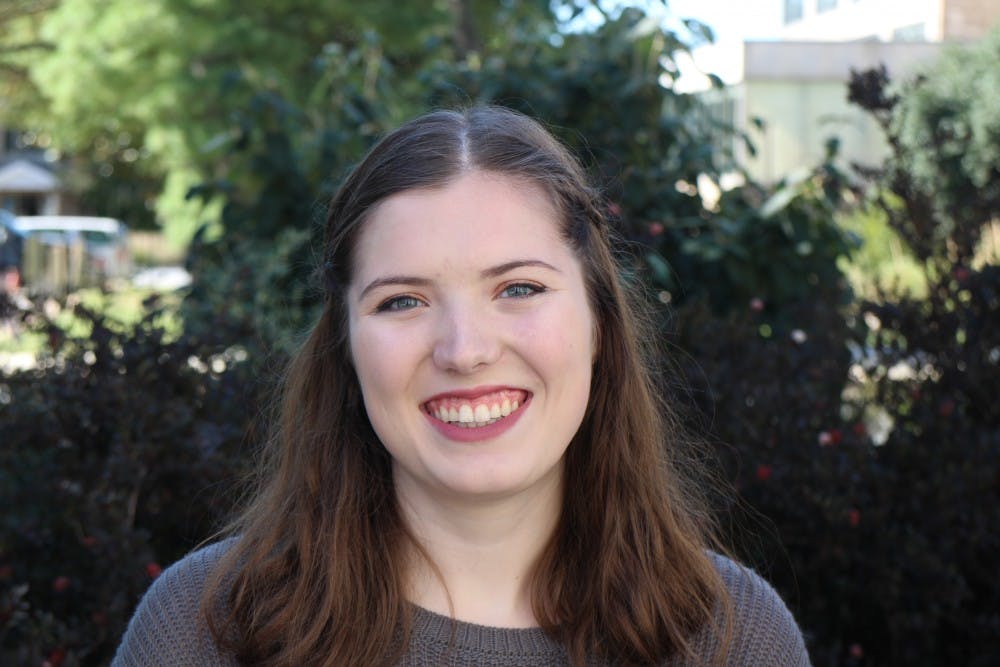The “liberal arts experience” draws students to colleges and universities across the country. Small classrooms, where students know each other and professors have discussions on various subjects, is the quintessential image of what the college experience should be like for many incoming students, whether or not the school is technically labeled as a liberal arts school.
AU claims this image of a liberal arts school. On the academics section of the University’s website, it claims that “whatever major students choose, they acquire a solid foundation in the liberal arts and pursue in-depth study in their chosen fields.” The University claims that students are given the opportunity to explore different bodies of knowledge, learn new ways of thinking and get that rosy image of a liberal arts education. While AU is not considered a liberal arts school according to U.S. News and World Reports, they still claim it as part of the school’s identity. The reality, however, is that students may feel pressured to stick with a major from freshman year and never receive the time to truly explore areas of study.
“I think AU is primarily focused on career training and preparing students for whatever field they’re in,” said Andrew Klabnik, a freshman in the School of Communication. “But, for a liberal arts education, they’re teaching you how to think and be a well-rounded student.”
Under the current general education system, students who enter the University with AP, IB or dual-enrollment credit can avoid general education classes. I have experienced this personally. While I enjoy getting to avoid classes that are unrelated to my major or possibly uninteresting, I also don’t feel I have the time to explore other subjects and majors.
It can be difficult to find the time to change majors.
“I think there’s a lot of prerequisites for majors that make it difficult and specialization that cause students to need the four years,” said Kelly Phares, a graduating senior in the School of Communication.
The pressure to graduate early supersedes being exposed to other disciplines. There is a pressure to succeed, and success often means money. The earlier a student graduates, the more they save and the sooner they can get a job to pay off loans. General education classes just become a barrier to that success, instead of a time of discovery. I may want to avoid science, but I am also missing out on the opportunity to learn more and different ways of thinking. The attitude I perceive from fellow students is that these classes are not a way to experience other learning styles, but just something to check off the list.
“It seems like the mentality for a lot of gen-eds is ‘I just need to take this gen-ed,’” Klabnik said. “It’s very perfunctory.”
For Phares, the attitude towards general education classes makes sense.
“People will come in undecided, but they know there’s something they’re interested in at AU,” Phaeres said. “So, I think that’s the reason they blow off or have less of an interest in gen-eds is because they have a pretty good idea of what they want to do, even if they don’t think they do.”
Exploration is what leads people to discover not only what they enjoy, but the type of person they are. About 2,000 students at AU are majoring in international studies according to the Office of Institutional Research and Assessment. This means that about 25 percent of students are in one major at a university that offers dozens of other majors. SPA is also a popular school, with about 1,500 undergraduates. I know that these are the students AU attracts and the premier programs AU offers. However, these students still deserve the chance to explore. It can give students the opportunity to develop a sense of themselves.
What AU really needs is an attitude adjustment toward the “liberal arts education” they espouse. Encouraging students to take more electives or explore a general education area in-depth is easy enough for advisors and administrators to do.
“I think the idea is there, but the execution isn’t,” Phares said.
Instead of these classes being yet another requirement to graduate, they should be experiences with different subjects and ways of thinking.
On its website, AU states, “We reject the idea that there is any single body of knowledge that constitutes ‘what all educated people should know.’ What we care about are learning outcomes—that is, how your education helps you become who you are.”
The University’s new AU Core curriculum is a step in the right direction. It will be implemented for all students beginning with students arriving in fall 2018. Students will take general education classes over four years and develop a broad base of knowledge.
Currently, “our students experience the General Education program in wildly different ways,” Core curriculum proposal said. The new program hopes to change student attitudes toward required courses, and encourage different ways of thinking.
This new curriculum demonstrates that there is not a “single body of knowledge” needed in university education. I hope it will help incoming classes grow.
Samantha McAllister is a freshman in the School of International Service and a columnist for The Eagle.
smcallister@theeagleonline.com





